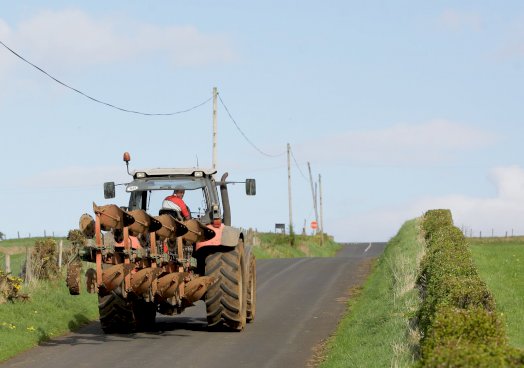
Commodity Watch by UFU policy officer Sarah Morrell
On 1 April 2022, many sectors that currently use red diesel (also known as rebated fuel) to power off-road vehicles and equipment, will lose this entitlement and will have to use white diesel.
Agriculture will retain its right to use red diesel for activities directly related to farming. This includes cutting verges and hedges, snow and flooding clearance and gritting roads. As well as travelling on road in agricultural vehicles to attend to animals, grow and harvest crops and upkeep agricultural land.
It is important that the vehicle is used to carry out an agricultural activity to permit the use of red diesel, and not just moving equipment or materials from one place to another. For example, if a tractor and trailer transports fertiliser from a merchant to the farm and the tractor is used to spread the fertiliser, red diesel can be used. However, if a tractor and trailer transports fertiliser from a merchant to the farm, and the tractor is not used to spread the fertiliser, white diesel must be used. This is considered to be haulage as the tractor is not involved in the agricultural activity i.e., spreading the fertiliser. This currently applies and will continue to be applied when the rules change on 1 April 2022.
The biggest change will be for contractors who complete a variety of agricultural and non-agricultural work. For dual use machines, used in more than one sector e.g., construction and agriculture, tanks will need to be flushed out between use or the machine solely run on either red or white diesel. Flushing a tank may not fully remove all residual traces of the red diesel marker, even if flushed several times. Therefore, good record keeping will become very important. Receipts and invoices for fuel and a record of when and why the tank has been flushed, will need to be kept.
HMRC will be focusing their enforcement on companies suspected of knowingly or deliberately using red diesel illegally. As long as farmers keep adequate records showing a normal fuel purchasing pattern and usual agricultural use of machinery, they should not be at risk.
HMRC have acknowledged that due to safety and operational reasons, there will be red diesel residue in storage tanks and therefore, will be in use for some time after 1 April 2022. They state that they may ask for receipts or invoices to prove that white diesel is being supplied if traces of red diesel are found in use after 1 April. For contractors, it is vital to keep good records so you can show your normal fuel usage and that you have bought your normal volume of fuel in the run up to the switchover.
Vehicles found to be using red diesel unlawfully can be seized. If there is evidence that red diesel is being used illegally, civil and criminal action may be taken with fines and an assessment made for additional fuel duty covering all vehicles operated and back dated for a period of up to four years.
To conclude, how farmers use and purchase red diesel will not change as it will continue to be permitted for agricultural use. Indirectly, farmers and others will be impacted by the change in rules, as businesses that lose the entitlement to use red diesel, such as the construction industry, will see a significant increase in costs which agriculture and the wider economy will be impacted by.




